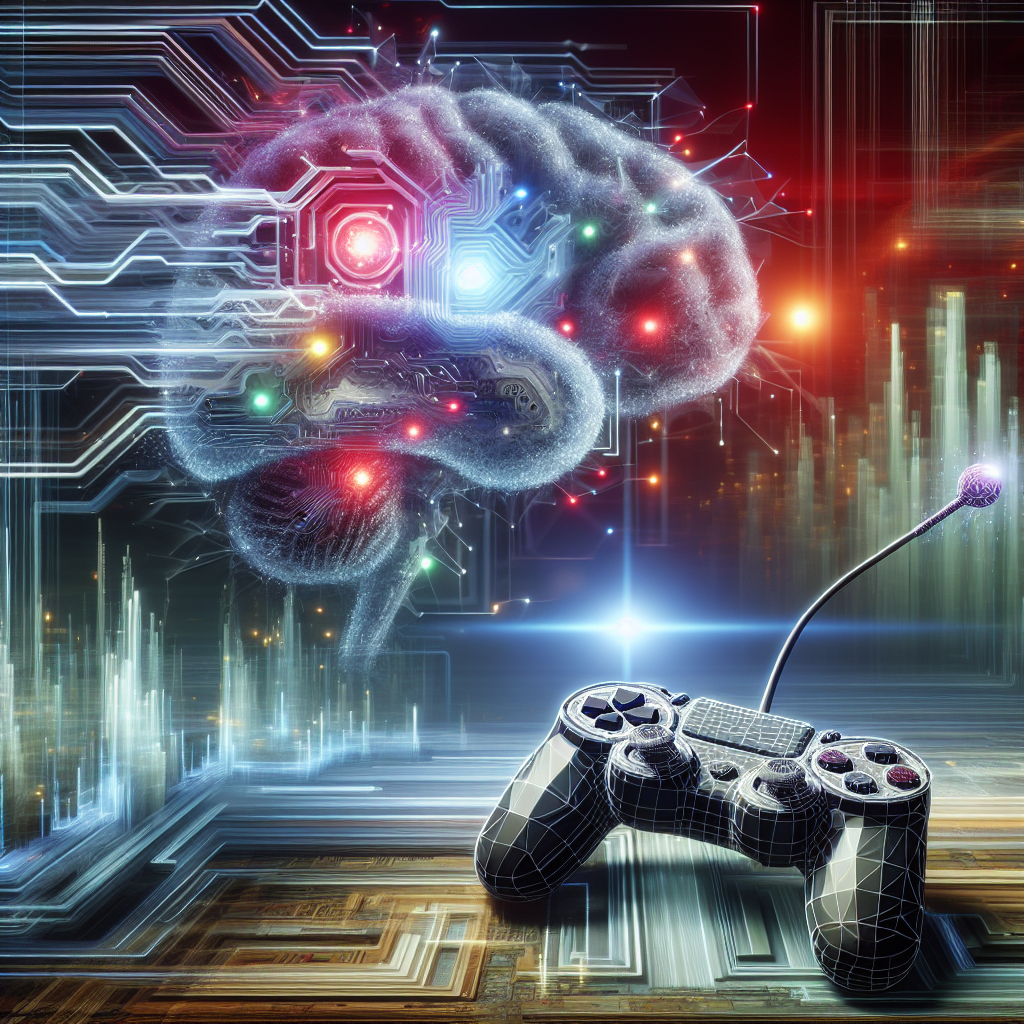Generative AI, also known as artificial intelligence, has been making waves in the gaming industry in recent years. This technology has the ability to create content and experiences that were previously only possible through human creativity. From generating realistic graphics to creating unique character designs, generative AI is transforming the way games are developed and played.
One of the most significant ways generative AI is impacting the gaming industry is through procedural generation. Procedural generation is a technique where algorithms are used to create content such as levels, environments, and characters in a game. This allows developers to create vast and dynamic worlds that are unique to each player’s experience. Games like Minecraft and No Man’s Sky are known for using procedural generation to create endless possibilities for players to explore.
Generative AI is also being used to enhance the visual and audio aspects of games. With the help of AI algorithms, developers can create highly realistic graphics and animations that were once only achievable through hours of manual labor. AI can also be used to generate dynamic soundscapes and music that adapt to the player’s actions in real-time, creating a more immersive gaming experience.
Another way generative AI is transforming the gaming industry is through the creation of personalized experiences. AI algorithms can analyze player behavior and preferences to tailor gameplay to individual players. This can include adjusting difficulty levels, recommending content, or even creating custom levels based on a player’s play style. This level of personalization can keep players engaged and coming back for more.
Generative AI is also being used to create intelligent NPCs (non-playable characters) that can interact with players in more realistic and dynamic ways. These NPCs can adapt to the player’s actions, making the game world feel more alive and responsive. This level of AI-driven interaction can create a more immersive and engaging gaming experience for players.
In addition to enhancing gameplay, generative AI is also being used to streamline the game development process. AI algorithms can assist developers in tasks such as bug testing, level design, and playtesting, saving time and resources. This allows developers to focus more on creating innovative and engaging gameplay experiences.
Overall, generative AI is transforming the gaming industry by enabling developers to create more immersive, personalized, and dynamic gaming experiences. With the help of AI algorithms, games are becoming more sophisticated and engaging than ever before.
FAQs:
Q: How does generative AI differ from traditional game development techniques?
A: Generative AI uses algorithms to create content and experiences in games, whereas traditional game development techniques rely on manual labor and pre-designed assets. Generative AI allows for more dynamic and personalized gameplay experiences.
Q: Are there any limitations to generative AI in gaming?
A: While generative AI has the potential to revolutionize the gaming industry, there are still limitations to the technology. AI algorithms can sometimes produce unpredictable or nonsensical results, and not all aspects of game development can be automated with AI.
Q: How can players benefit from generative AI in games?
A: Generative AI can create more immersive and personalized gaming experiences for players. AI algorithms can analyze player behavior and preferences to tailor gameplay to individual players, creating a more engaging and dynamic experience.
Q: What are some popular games that use generative AI?
A: Games like Minecraft, No Man’s Sky, and Spelunky are known for using procedural generation to create dynamic and unique gameplay experiences for players. These games showcase the potential of generative AI in the gaming industry.

